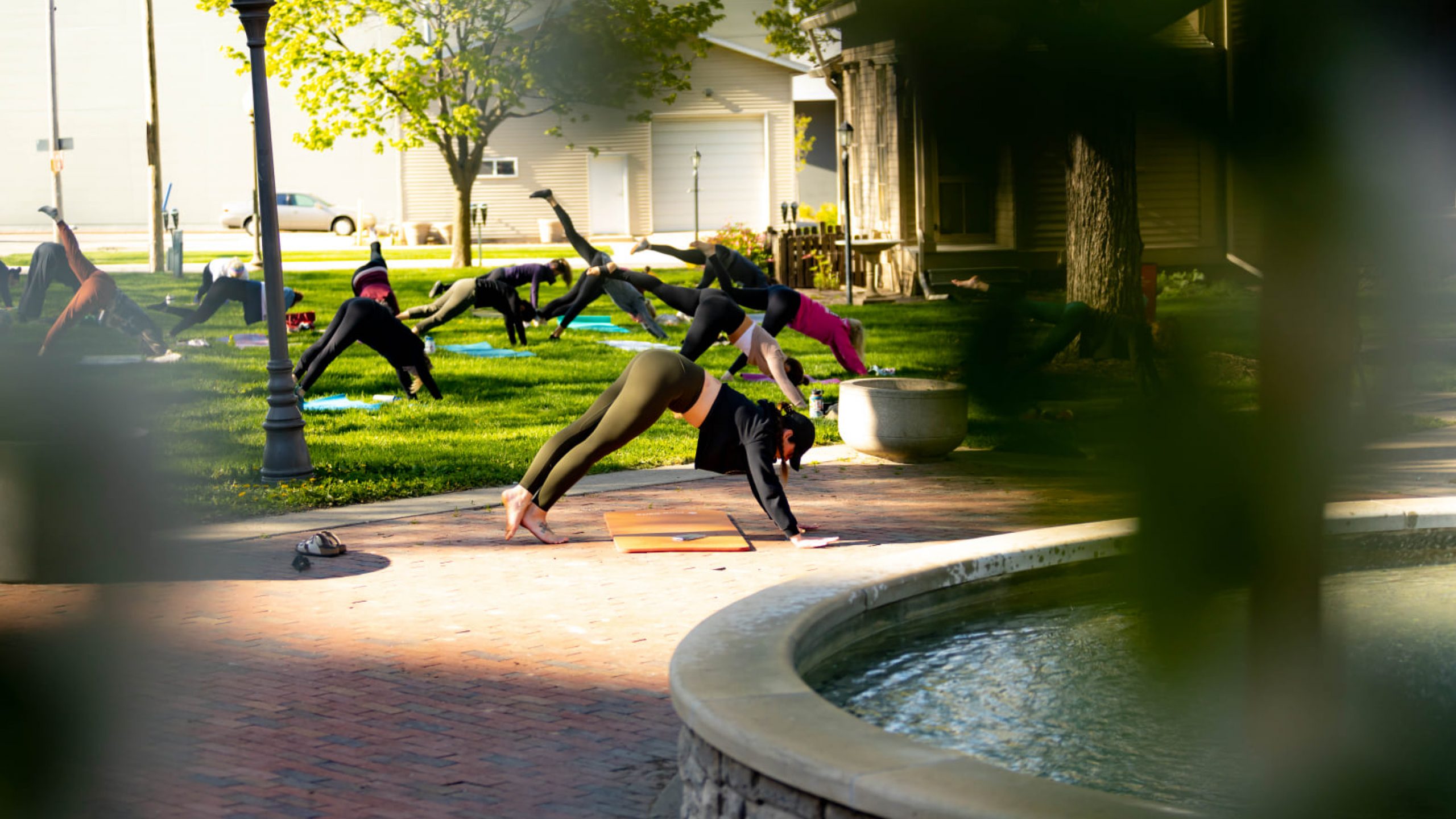
Guest Blog by Misty Schutterle, WSU Graduate Student in Clinical Mental Health and Addiction
May is Mental Health Awareness month. Now is as good a time as ever to pause and reflect, because nearly 1 in 5 Americans lives with a mental health condition. Winona State University-Rochester is determined to raise awareness of those living with mental or behavioral health issues and to help reduce the stigma that so many experience.
Mental health and wellness are highly complex, multi-dimensional phenomena influenced by many factors. The World Health Organization (WHO) defines mental health as “a state of emotional, psychological, and social well-being, and not merely the absence of disease.” Mental health and well-being can be collectively understood as dynamic processes that emphasize one’s capacity to manage distress, build resilience, reduce suffering, acquire inner peace, and find meaning in life. Mental wellness indicates autonomy, self-acceptance, growth, environmental mastery, and positive relationships, all of which can be enhanced and strengthened through conscious action. Mental wellness is a self-generating renewable resource that allows one to feel better about themselves, think more clearly, and function more effectively.
According to the Substance Abuse and Mental Health Services Administration (SAMHSA), wellness is comprised of eight domains including emotional, environmental, financial, intellectual, occupational, physical, spiritual, and social. To build and maintain your overall well-being, one must make sure all of these domains are functioning to some extent. Recognizing the importance of wellness, reflecting on what your wellness encompasses, and tending to your wellness needs are powerful preventative methods that can be used to help you to cope with life stressors, have good relationships, be productive, and maximize your potential.
Self-care 101
Self-care means taking the time to do things that help you live well and improve your physical, psychological, emotional, and spiritual health and well-being. Self-care looks different for everyone, and it is important to find what you need and enjoy. Remember, self-care is not a cure for mental illnesses. Understanding what causes or triggers your mild symptoms and what coping techniques work for you can help manage your mental health and wellness. Self-care can help you build resilience, manage stress, lower the risk of illness, and increase your energy. Even small acts of self-care in your daily life are impactful. Here are some tips to help you get started:
- Focus on positivity. Identify and challenge your negative and unhelpful thoughts.
- Practice gratitude. Remind yourself daily of things you are grateful for. Be specific.
- Stay connected. Reach out to your friends or family members who can provide emotional support and practical help.
- Set goals and priorities. Decide what must get done now and what can wait. Learn to say “no” to new tasks if you start to feel like you’re taking on too much. Try to be mindful of what you have accomplished at the end of the day, not what you have been unable to do.
- Make sleep a priority. Stick to a schedule and make sure you’re getting enough sleep. Blue light from devices and screens can make it harder to fall asleep, so reduce blue light exposure from your phone or computer before bedtime.
- Try a relaxing activity. Explore relaxation or wellness programs or apps, which may incorporate meditation, muscle relaxation, or breathing exercises. Schedule regular times for these and other healthy activities you enjoy such as journaling.
- Eat healthy meals and stay hydrated. A balanced diet of water can improve your energy and focus throughout the day. Limit caffeinated and alcoholic beverages.
- Get regular exercise. Just 30 minutes of walking every day can help boost your mood and improve your health. Small amounts of exercise add up.
Winona State University-Rochester, in collaboration with Rochester Downtown Alliance (RDA), has free fitness classes in May and June to help you get started on your journey to wellness. Classes are held outside in the fresh air where you can reconnect with the majestic beauty of nature and other people. I have been attending the fresh-air fitness classes for several years and am excited to attend again this year. For more information on Fresh-Air Fitness visit the RDA’s website here. For other ideas on healthy practices for your mind, body, surroundings, and relationships, see the National Institutes of Health (NIH) Wellness Toolkits. I wish you the best on your wellness journey, and look forward to seeing you at wellness events throughout the year.
Resources:
National Institutes of Health (NIH)- https://www.nih.gov/health-information/your-healthiest-self-wellness-toolkits
Substance Abuse and Mental Health Services Administration (SAMHSA)- https://www.samhsa.gov/programs/mental-health-awareness-month
World Health Organization (WHO)- https://www.who.int/health-topics/mental-health#tab=tab_1
